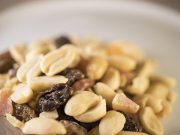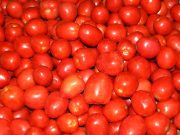In today’s fast-paced world, maintaining balanced blood sugar levels can be a challenging yet critical aspect of one’s overall health. Whether you’re managing diabetes, prediabetes, or simply aiming to sustain optimal health, natural solutions offer a promising avenue to explore. In this guide, we empathize with the frustrations and struggles you may face while providing insightful, evidence-based approaches to help you take control. By understanding and implementing these natural strategies, you can make informed choices that support your body’s balance, all while fostering a more healthful and empowered lifestyle. Let us journey together towards a path of wellness that embraces nature’s wisdom and nurtures your well-being.
Choosing the Right Foods to Balance Your Blood Sugar
Finding and choosing the right foods can play a crucial role in managing your blood sugar levels naturally. It’s not just about what you eat, but also how you combine different foods for a balanced effect. Here are some essential foods and strategies to consider:
- Whole Grains: Opt for brown rice, quinoa, or oatmeal. These are rich in fiber and help in slowing down sugar absorption.
- Legumes: Beans, lentils, and chickpeas are excellent choices providing both protein and fiber.
- Healthy Fats: Include avocados, almonds, or walnuts daily to stabilize blood sugar spikes.
- Leafy Greens: Spinach, kale, and swiss chard are low in carbohydrates and packed with essential nutrients.
- Berries: Blueberries and strawberries not only satisfy your sweet cravings but are also packed with antioxidants.
Combining various foods to achieve a balanced meal is an effective strategy. For instance, pairing proteins with high-fiber vegetables or whole grains can slow digestion and improve blood sugar control. Here’s a handy reference:
| Food Group | Examples | Benefits |
|---|---|---|
| Proteins | Chicken, Tofu | Builds and repairs tissues |
| Fibers | Broccoli, Lentils | Aids digestion, stabilizes sugars |
| Healthy Fats | Nuts, Olive Oil | Supports heart health |
Remember, consistency is the key. Maintaining a balanced approach when it comes to food choices can make a significant difference in keeping your blood sugar levels in check, fostering a healthier and more energetic lifestyle.

Embracing Physical Activities that Support Healthy Glucose Levels
Finding the right physical activities that align with your lifestyle can be a game-changer in managing blood sugar levels. Not only does exercise boost overall health, but it also enhances insulin sensitivity and aids in glucose management. Here are a few effective yet enjoyable types of physical activities to consider:
- Walking: A simple afternoon walk can work wonders by lowering blood sugar levels and improving heart health.
- Cycling: Offers a fun way to incorporate cardio, promoting better glucose uptake by your muscles.
- Yoga: Balances both mind and body, reducing stress and potentially stabilizing blood sugar spikes.
| Activity | Duration | Weekly Frequency |
|---|---|---|
| Walking | 30 minutes | 5 days |
| Cycling | 45 minutes | 3 days |
| Yoga | 20 minutes | 3 days |
Make movement a regular part of your life by starting with what excites you. The key is consistency—it’s not only about strenuous workouts but also about finding joy in activity. Remember, small steps can lead to significant changes in managing blood sugar and enhancing well-being. Choose what supports you best and integrate these practices into your routine.

Understanding Stress and Its Impact on Blood Sugar
Stress is an inevitable part of life, but its impact on blood sugar levels can be more significant than many realize. When we experience stress, the body releases hormones like cortisol and adrenaline, which trigger a fight-or-flight response. This reaction is beneficial in immediate, short-lived situations. However, chronic stress leads to prolonged hormone release, causing the liver to dump extra glucose into the bloodstream, thereby raising blood sugar levels. Over time, this can create a vicious cycle that hampers efforts to maintain healthy blood sugar levels.
- Hormonal Impact: Cortisol increases glucose production by the liver.
- Insulin Interference: Heightened stress interferes with insulin’s ability to manage blood sugar effectively.
- Emotional Eating: Stress may drive cravings for sugar-rich comfort foods, leading to quick spikes in blood sugar.
| Stress Factor | Blood Sugar Impact |
|---|---|
| Chronic Work Stress | Increases fasting blood glucose |
| Financial Strain | Triggers emotional eating, raising sugar levels |
| Lack of Sleep | Exacerbates insulin resistance |
Watching for stress signs and developing healthier coping mechanisms can greatly aid those struggling with blood sugar management. Integrating mindfulness practices, like meditation and yoga, into daily life, along with regular exercise, not only helps reduce stress but also improves the body’s use of insulin. Additionally, maintaining a nutritious diet full of fiber-rich foods can prevent large blood sugar swings, creating a stable foundation for both physical and emotional well-being.

Incorporating Herbal Remedies and Supplements Safely
When considering herbal remedies and supplements for managing blood sugar levels, it’s paramount to prioritize safety and efficacy. Here’s a quick guide to help you make informed choices:
- Consult with Healthcare Professionals: Before incorporating any new supplement, it’s crucial to discuss your plans with a healthcare provider, especially if you’re currently on prescribed medication. This ensures there are no adverse interactions, and the chosen remedy supports your overall treatment plan.
- Quality Assurance: Not all supplements are created equal. Opt for those with a certification from reputable organizations, such as the USP or NSF. This guarantees that you are consuming a product that has been tested for purity and quality.
- Research-backed Choices: Focus on supplements with scientific evidence supporting their use in blood sugar management. Cinnamon, berberine, and fenugreek are among the popular choices that research suggests may help in maintaining healthy blood glucose levels.
To enhance your confidence in selecting the right supplements, consider the information presented in the table below:
| Supplement | Potential Benefit | Consultation Advice |
|---|---|---|
| Cinnamon | May lower fasting blood sugar | Start with small doses; discuss allergies |
| Berberine | Improves insulin sensitivity | Monitor for gut discomfort |
| Fenugreek | Supports digestion and glucose metabolism | Check for pregnancy restrictions |
Remember, the journey to balanced blood sugar levels through herbal remedies is a personal one, evolving as you discover what works best for your unique biology. Trust the process, equipped with diligence and empathy, and always prioritize your well-being over quick fixes.
In Conclusion
managing blood sugar levels naturally is not just a proactive step towards better health, but also an empowering journey of regaining control over your well-being. By incorporating these natural solutions, such as mindful dietary choices, regular physical activity, stress management, and the use of beneficial herbs and supplements, you’re not only fostering a healthier lifestyle but also demonstrating a commitment to long-term health.
It’s important to remember that every individual’s body responds differently, and what works for one person may not be as effective for another. Therefore, stay patient and attentive to your body’s signals as you explore these natural options. Additionally, always consult with healthcare professionals to ensure that your approach is safe and suitable for your unique needs.
We hope these insights have provided you with valuable tools and renewed motivation to manage your blood sugar levels naturally. Remember, small, consistent steps can lead to significant changes. Stay informed, stay dedicated, and most importantly, be gentle with yourself during this journey towards healthier living.








































